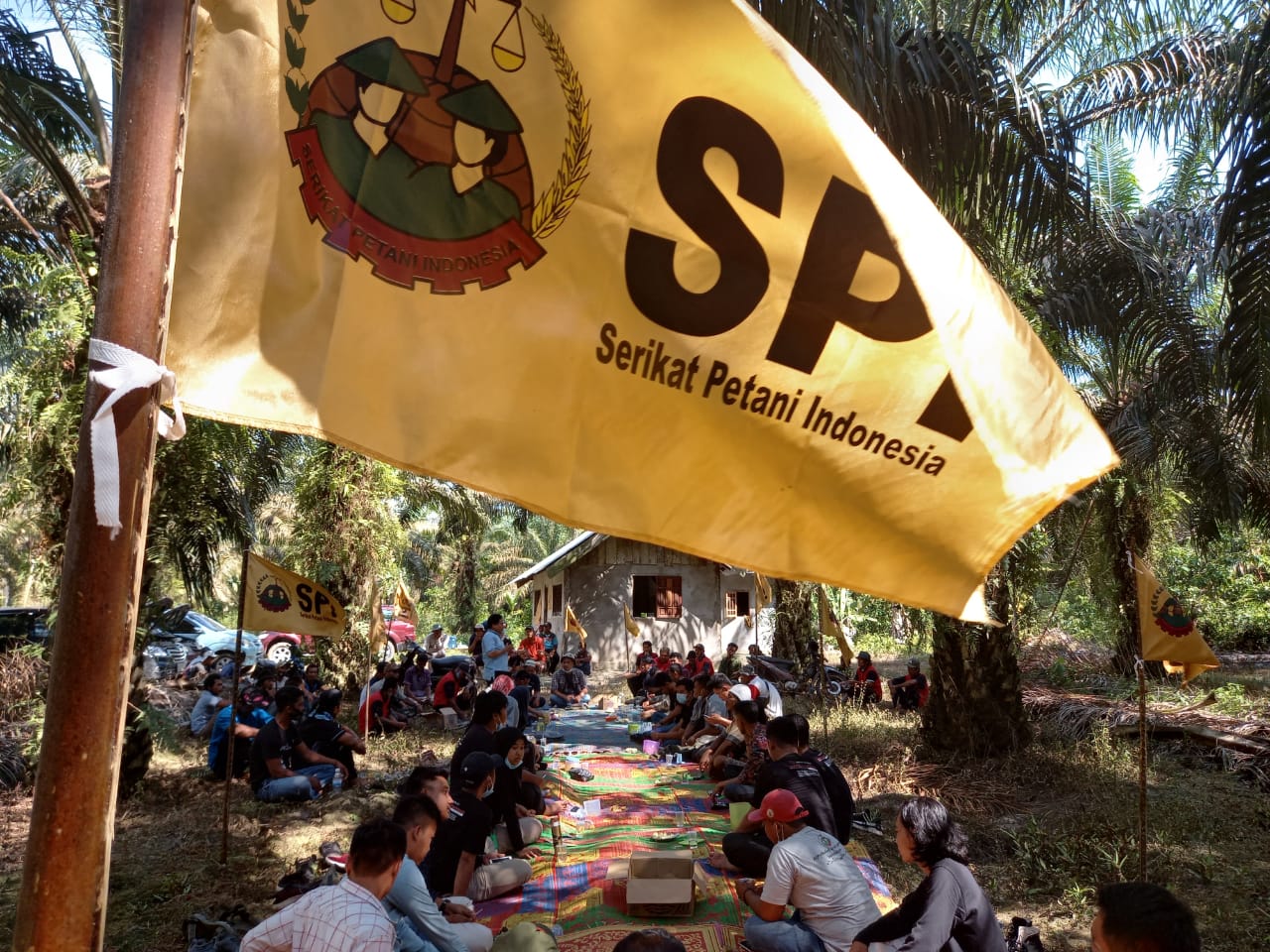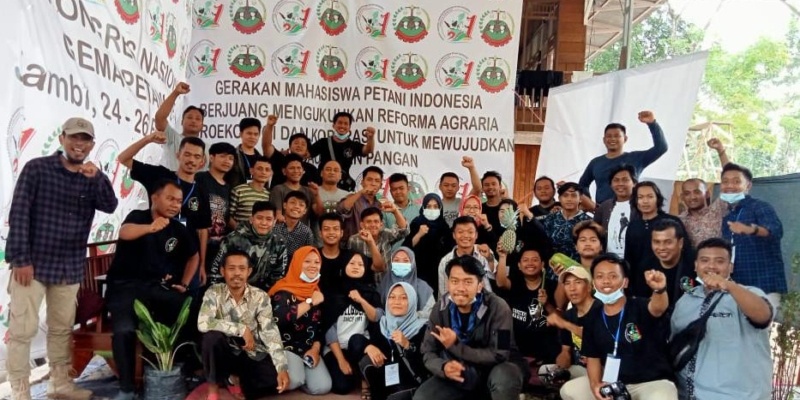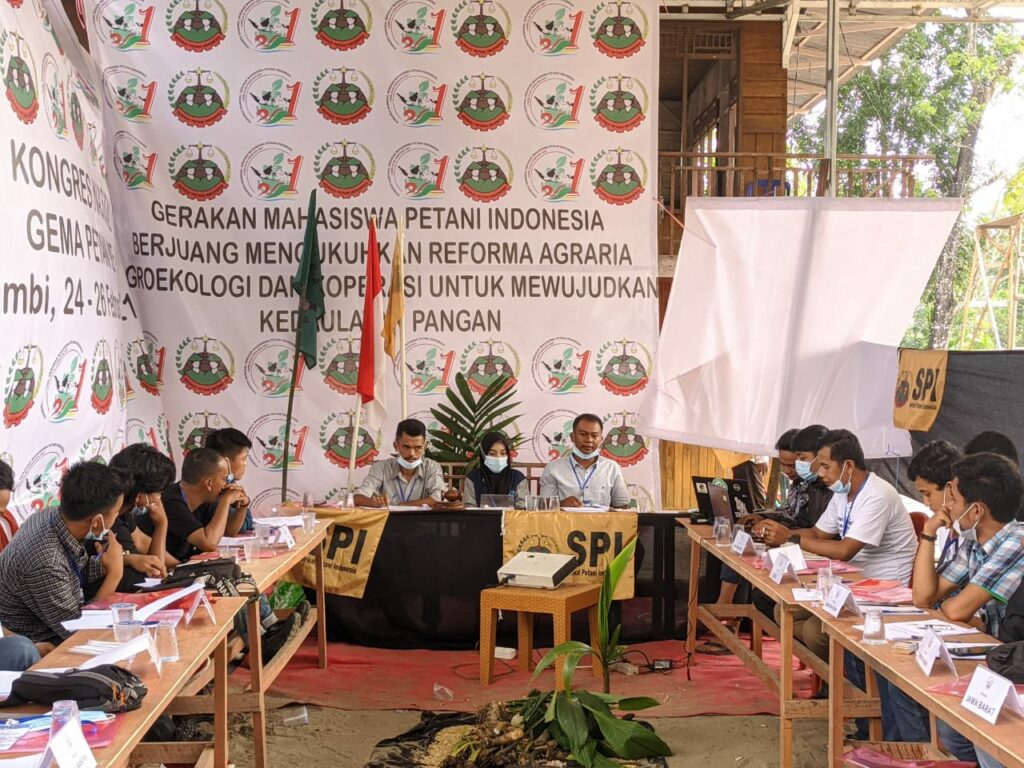Gema Petani: Indonesia Peasant Youth and Student Movements come together to organise their first conference in Jambi

On 24-26 February 2021, the Indonesian Peasants Student Movement (Gema Petani) held its First Conference in Jambi, with some participants also attending through video conferencing. The conference was attended by student delegations from 13 provinces covering eastern, central and western Indonesia.

The participants discussed the role played by peasant youth and students to strengthen agrarian reform, agroecology, and cooperatives to achieve food sovereignty. Marlan Ifantri Lase, Committee Chair of Preparation for the Formation of Gema Petani, said that after five years since its inception, Gema Petani now exists in 13 provinces. On September 20, 2020 a nationwide body was also established. “This first conference is a hard work of Gema Petani cadres which is fully supported by the Indonesian Peasant Union (SPI). It was deliberately held at one of our peasants’ house directly to express that Gema Petani are the children of peasants, “added Marlan.

Henry Saragih, Chairperson of the Indonesian Peasants Union (SPI), who delivered the opening speech at the conference emphasised that real change would only come from students and peasant youth. “We need to recognise that a strong movement like SPI is a result of the collaboration between peasant movement and student movement in rural areas. This is why SPI, at a meeting held in August 2016, SPI decided to establish Gema Petani. Indonesia has the capability to implement food sovereignty for our people. Yet over the years peasants have lived in poverty, their rights have been violated, criminalised. Young people do not want to associate with peasantry any more and that can endanger our food sovereignty. The challenge before Gema Petani is to transform this scenario and bring youth at the front-lines of our struggle for food sovereignty.”

Sarwadi Sukiman, Chairperson of SPI Jambi added, Gema Petani is a new force that can accelerate this transformation peasants seek. “Congratulations on the conference, hopefully the best programs will be produced. Let’s together with peasants, peasant organisations, realising genuine agrarian reform for food sovereignty and social justice, “he said.
Annas Sodikin, coordinator of the National Executive Committee conveyed that the younger generation, especially students, have a very central role and function in agrarian development, food and agriculture, and students are required to be closely follow and understand the agrarian, agroecological and cooperative struggles to realize the ideals of food sovereignty.
“There is a need for revitalization of the student movement to answer the challenges of socio-cultural, economic and political changes in agriculture and rural areas. Gema Petani must strive to bring positive changes to allow each citizen to become a sovereign and prosperous human being for a better future,” he added.
A national seminar titled “Revitalizing the Student Movement to Respond to the Challenges of Socio-Political Change in Agriculture and Rural Areas” was also held during the conference.
The participants also visited Tanjung Jabung Timur District (Tanjabtim), Jambi, where the Indonesian Peasant Union is struggling for agrarian reform. They urged the government of Tanjung Jabung Timur District to immediately resolve the agrarian conflict that has jeopardized the peasants in the area.
“We condemn the destruction of peasants’ houses and crops carried out by companies. We urge the government to accelerate the implementation of genuine agrarian reform in Tanjabtim and Indonesia as a whole, “said Anas.
Additional Note:
Representations from several local, regional, national and global peasant alliances at the conference included La Via Campesina, the Wahana Lingkungan Hidup (WALHI) Agrarian Reform Consortium (KPA), the Indonesian Farmers’ Alliance (API), student organizations such as GMNI, KAMMI, FMN, POPMASEPI, labor organizations, and others. Participants at the First conference elected five members to the National Executive Committee; Annas Sadikin from West Java was elected as the National Coordinator. Others included Yoggy Efendi Sikumbang from Jambi, Riki Pratama Putra from Bengkulu, Iqbal Hambali from South Kalimantan, and Fidelis Roi from East Nusa Tenggara.
